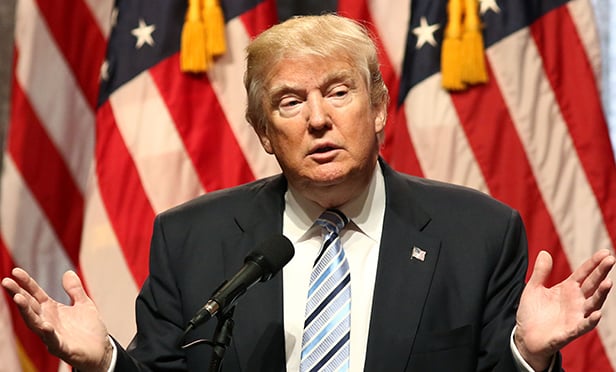Buying a lottery ticket may soon be no more difficult than clicking a computer mouse, and U.S. states grappling with budget deficits are seeking to cash in.
From California to New York, lotteries that already account for $56 billion in annual sales are considering expanding to the Internet after the U.S. Justice Department ruled that it's legal to sell tickets on the Web to local residents. In New York, that may mean selling so-called virtual tickets on mobile phones or computers. Illinois next year will begin testing online sales of Powerball and Mega Millions, two games offered by the 33-member Multi-State Lottery Association.
“All state lotteries are looking at how we can expand our base and sell tickets,” said Andi Brancato, a spokeswoman for the Michigan Lottery. Internet sales are “definitely in the mix for everyone.”
Online tickets may bring much-needed revenue to states facing a collective $31.9 billion budget gap in the next fiscal year, according to a report by the National Conference of State Legislatures in Denver. In 2010, Americans spent more than $4 billion to gamble online, up from $2.4 billion in 2003, according to the American Gaming Association.
The Justice Department said a 40-year-old federal law that prohibits wagering over telecommunication systems that cross state or national borders doesn't bar states from using the Internet and outside processors to sell lottery tickets to their adult residents. The ruling came in a memo responding to requests for clarification of the statute from New York and Illinois.
The Wire Act “prohibits only the transmission of communications related to bets or wagers on sporting events or contests,” Assistant Attorney General Virginia Seitz, who heads the department's Office of Legal Counsel, wrote in the Sept. 20 memo, which was released Dec. 23.
Lottery officials will now feel freer to set up online games and perhaps join other states on Internet sales, said Joseph Kelly, a professor of business law at Buffalo State College in New York and consultant for the gambling industry.
“It could be very important for the states,” Kelly said.
Cash-strapped states already have increased efforts to maximize lottery sales after income from the games fell for the first time in more than a decade in 2009, according to census data. Moves by states such as Arizona, which held focus groups, increased jackpots and boosted its advertising budget, have paid off.
Of the 43 states with lotteries, 26 saw revenue grow in traditional games in the last fiscal year, with total sales up 3 percent to $56 billion, according to Rockville, Maryland-based lottery research firm La Fleur's.
Casino Gambling
Some states are also looking to expand traditional gambling. Massachusetts Governor Deval Patrick signed legislation Nov. 22 authorizing as many as three resort casinos. New York Governor Andrew Cuomo is pressing lawmakers to approve a constitutional amendment making Las Vegas-style casinos legal in the Empire State. Both governors are Democrats.
It will be at least two years before New York voters can approve a gambling amendment, and the state is looking for ways to expand its lottery to catch extra revenue.
According to New York's December 2009 letter to the Justice Department, a new computer system will allow adult residents to buy tickets online and then pick them up at a retail location. Other tickets will be “virtual,” delivered over the Internet to computers or mobile phones, the letter said.
The system, completed last year, will build on a subscription program for Lotto and Mega Millions introduced in 2005, Carolyn Hapeman, a New York Lottery spokeswoman, said in a telephone interview.
“We are trying to digest what the decision means,” Hapeman said.
California is also reviewing the ruling, said Russ Lopez, a spokesman for the state lottery.
The District of Columbia is rolling out a program that would allow users to play poker or slot-like games at Internet “hot spots” operated by D.C. Lottery around the city. Last week, Nevada's gaming commission agreed to allow online poker in the state, which includes Las Vegas.
Illinois will begin testing online sales of Powerball, Mega Millions and Lotto tickets by the second quarter, Michael Jones, the lottery superintendent, said in a telephone interview.
Internet sales could attract 300,000 to 500,000 new customers “who philosophically support the lottery but blow right past” ticket outlets at convenience stores, Jones said. That may create “hundreds of millions of dollars” in revenue, he said.
The real jackpot won't be in ticket sales; it will be when states offer Internet poker and video slots online, Frank Fahrenkopf, president of the gaming association, a Washington-based group representing casinos.
“It's now clear that not only can lotteries sell tickets online, but also games that look like slot machines and poker,” Fahrenkopf said in a telephone interview. “That's where they want to go.”
Bloomberg News
Copyright 2018 Bloomberg. All rights reserved. This material may not be published, broadcast, rewritten, or redistributed.
Complete your profile to continue reading and get FREE access to Treasury & Risk, part of your ALM digital membership.
Your access to unlimited Treasury & Risk content isn’t changing.
Once you are an ALM digital member, you’ll receive:
- Thought leadership on regulatory changes, economic trends, corporate success stories, and tactical solutions for treasurers, CFOs, risk managers, controllers, and other finance professionals
- Informative weekly newsletter featuring news, analysis, real-world case studies, and other critical content
- Educational webcasts, white papers, and ebooks from industry thought leaders
- Critical coverage of the employee benefits and financial advisory markets on our other ALM sites, PropertyCasualty360 and ThinkAdvisor
Already have an account? Sign In Now
*May exclude premium content© 2024 ALM Global, LLC, All Rights Reserved. Request academic re-use from www.copyright.com. All other uses, submit a request to [email protected]. For more information visit Asset & Logo Licensing.




